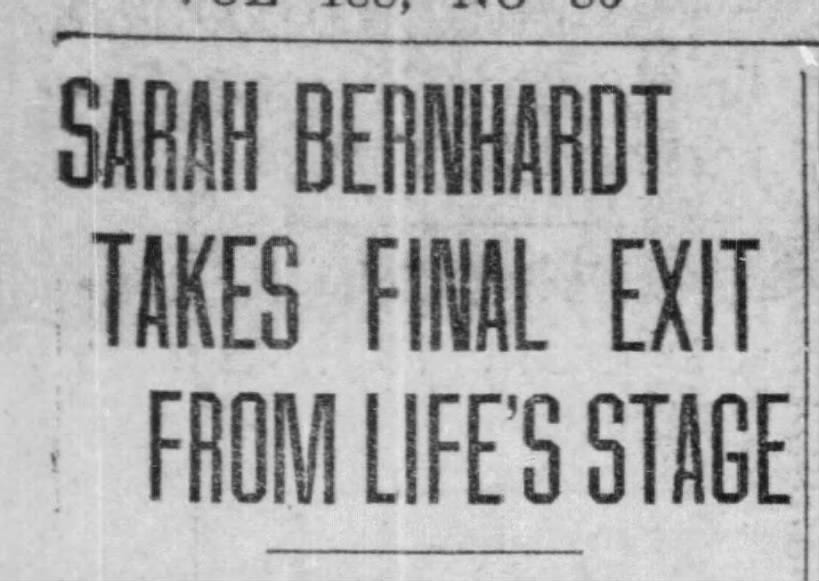“Are you a Catholic?” To that question Sarah Bernhardt, for whatever reason, gave conflicting answers throughout her adult life.
The famous French stage actor of the late 19th and early 20th century, died in her Paris home on Monday evening, March 26, 1923, at the age of 78.
The following day the Philadelphia Inquirer picked up the Associated Press report: “In life she had an amazing power of emotion, or marvelous realism and pathos in her acting of death scenes. At the end of her days, she quietly drifted away into eternity…”.
Assisting her soul in that quiet departure was an unnamed Roman Catholic priest who administered Extreme Unction, the Last Rites of the Church, known today as Anointing of the Sick.
This is notable when one learns that though baptized Catholic (her mother was Jewish and her absent father’s family Catholic) her true religious belief, if any, remained a puzzle throughout her adult life - apparently as she wished.
She received her First Holy Communion in 1856, and while attending a convent school declared her intention to become a nun, but years later claimed to be an atheist. Another time she said, “I’m a Roman Catholic and a member of a great Jewish race.” And once asked if she were a Christian, reportedly responded, “I’m waiting until Christians become better.”
Any mystery those responses created, or were intended to create, evaporated when death approached while hundreds of admirers were gathered outside her home.
The Friday before her passing Bernhardt began to experience symptoms of kidney failure, and as they worsened over the weekend, “a priest was summoned hurriedly in the church of St. Francois de Sales” - his entrance into the home, according to the Inquirer, “was taken by the watchers outside as visible evidence of the abandonment of hope. The priest administered extreme unction which she acknowledged with faint movements of the heads and hands, too weak to speak.”
While the watchers outside saw the priest’s arrival as “visible evidence of the abandonment of hope” it is likely Sarah Bernhardt, in her final moments, saw his arrival and the form of the sacrament that followed as visible evidence of the reason for hope.




